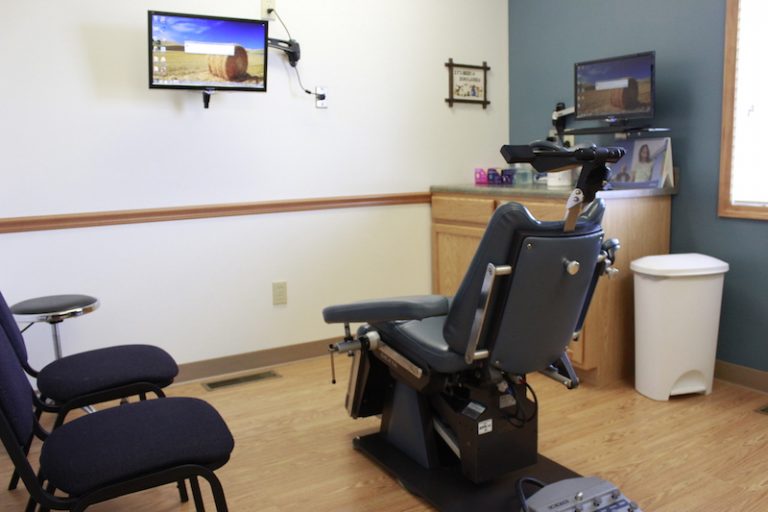There are several types of dentists, each with their own area of specialty. While most people are familiar with traditional dentists, who offer a wide range of services from check-ups to root canals, oral surgeons offer a different skill set. Oral surgeons specialize in surgeries related to the mouth and jaw, while general dentists focus in preventative oral care, maintenance and cosmetic dentistry.
What do Traditional Dentists Have to Offer?
All dentistry has the main goal of treating and preventing oral conditions which can inadvertently affect your overall medical health. When you have regular checkups or small problems such as a broken tooth, you most likely visit your regular dentist. This branch of dentistry is concerned with three basic areas of oral health:
- Basic care– This includes diagnostic and preventative treatments such as cleanings, x-rays, fluoride treatment, fillings, and other cosmetic procedures like teeth whitening.
- Major care– This area involves more delicate procedures such as dentures, crowns, tooth extraction, etc.
- Preventative care– This aims to protect teeth from damage, infection, and disease. X-rays, cleanings, and treatments aim to prevent tooth decay and cavities, to avoid further issues down the road.
Dental insurance is likely to cover most anything a general dentist does – save purely cosmetic procedures like teeth whitening. General dentists also tend to provide services to families, offering basic dental care to people of all ages. To become a dentist, an oral health professional must complete a DDS or DMD program. Typical services a dentist can provide include:
- Cleanings
- Exams
- X-rays
- Basic tooth extractions
- Fillings
- Crowns
- Bridges
- Whitening
- Bonding
- Veneers
Traditional dentists also focus on educating patients on how to keep up with their oral health, including proper dental care, regular exams and a healthy diet.
What Services do Oral Surgeons Offer?
At the end of the day, the goal of an oral surgeon remains the same as all dentists, to take care of teeth and gums. However, where oral surgeons differ is the problems that they are fixing. Oral surgeons treat patients who have dental problems that require surgery to solve. Patients that see an oral surgeon are referred to them by their primary care dentist in order to solve a problem that they do not have the resources or knowledge to do so themselves.
For example, you might have a tooth extracted by your dentist, who then refers you to an oral surgeon to place an implant. Oral, face and jaw surgeons also offer an extra set of skills such as IV sedation and general anesthesia training. Other services that are offered by oral surgeons include:
- Tooth extraction– This may be performed by an oral surgeon when the tooth decay or gum disease is severe and requires extensive measures to fix.
- Bone graft– When bone loss occurs in your jaw, a dental bone graft can be completed, restoring volume and density for dental implants to be placed on a solid foundation.
- Dental implants– Surgically implanted into your jawbone, artificial teeth are the closest substitute for natural teeth, and last longer than any other type of tooth replacement.
- Periodontal surgery– In severe cases of periodontitis, a surgeon is needed to clean the roots of your teeth to get rid of the plaque and bacteria.
- Corrective jaw surgery and full-mouth reconstruction– Abnormalities or trauma to the jaw bones can make cause for corrective surgery or reconstruction. This can also be done to improve pain caused from TMJ dysfunction.
- Wisdom tooth removal– Oral and maxillofacial surgeons can perform preventative extractions, as well as adult wisdom tooth removal and complicated extractions with wisdom tooth root
- Root canals– If a tooth becomes infected to the point where it causes abscesses to develop beneath the gums, an oral surgeon will perform a root canal to deaden the tooth. This eliminates the infection and possibility of recurrence without having to actually remove the tooth from the mouth.
Maxillofacial surgeons take these mouth and jaw surgeries a step farther, performing procedures like full mouth reconstruction, orofacial cleft correction, tumor removal, etc. Oral and maxillofacial surgeons are required to attain a DDS or DMD as well as complete a minimum 4-year residency.
If you require any type of dental service, it is important to make an appointment with the right type of dentist. Traditional dentists are qualified to do many dental procedures, but they may refer you to an oral surgeon if they feel that is what is best for your care. Finding one that meets all of your needs can take some time and research. Use this information as a starting point in your search for the perfect dentist for you and your smile.
Do you think you might need an oral surgeon or are curious about any other services offered by specific oral surgeons? Check out Wilmington Oral Surgery’s list of services.








